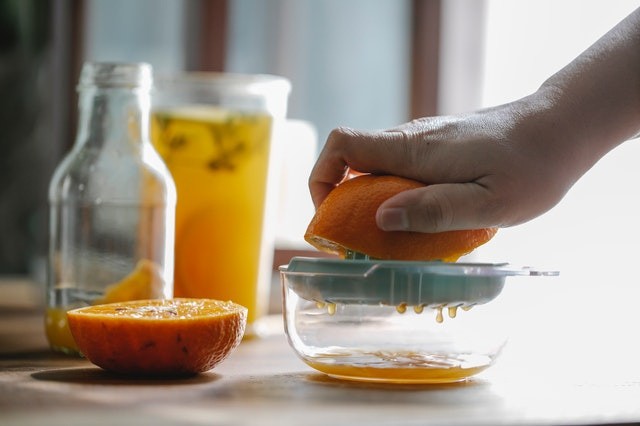A small probe known as a nanobiosensor that uses fluorescent to signal the pH of cells in terms of their alkalinity or acidity is currently being detected by researchers.
A Phys.org report specified that the Ph.D. researcher from the University of Sydney is devising cancer and severe illness-detecting biomedical probe that can be made from the juice of spoiled oranges.
Essentially, the nanobiosensor can detect if the cells are at risk or already in their early stages of cancer or other severe illnesses. When human cells turn more addicted, this study specified, "it can suggest that cancer is not far off."
The tiny probe, which gauges just one-billionth of a meter, is made of fluorescent carbon dots made from food waste, in this circumstance, the rotten oranges' juice.
ALSO READ : Welsh Scientists Invent a Solvent-Free Machine That Can Safely Clean Toxic Chemicals in Water

Benefit From 'Off' Oranges
In their study published in the Chemical Engineering Journal, the researchers explained that the "off" oranges were used for their high ascorbic acid levels, which enhances the functionality of the nanobiosensor, as well as minimize food wasted being brought to a landfill.
The process involves taking a tissue biopsy of cells assumed to be cancerous, putting them in a petri dish. Through the use of a laboratory pipette, scientific dropper, the nanobiosensor is then applied to the cells, which are then investigated under a fluorescent microscope, a microscope type that displays subtle light variations.
According to Pooria Lesani, the lead researcher and Biomedical Engineering Ph.D. student, "dramatic fluctuation in the cells' acidity," can result in inappropriate cell function, growth, and division. It can also result in severe illness.
Lesani, affiliated with the Sydney Nano Institute, added that they had developed a sensitive and cost-efficient nanobiosensor for real-time gauging the cells' degree of acidity.
Nanobiosensor
The lead researcher added that the tool could help them better understand how such diseases develop.
Lesani's research is being carried out under the supervision of AM Director of the ARC Centre for Innovative BioEntineering and Head of the Biomaterials and Tissue Engineering Unit, Professor Hala Zreiqat.
He explained that many diseases begin developing over many years, and even decades, before a person displays even the slightest of symptoms. With a lot of illnesses like Alzheimer's disease, once symptoms appear, it is quite late for them to be treated.
The device allows for a more precise diagnosis of diseases before the symptoms and allows for the early detection of severe illnesses linked to pH fluctuation.
The lead author added, they are hoping this could result in early treatment and prevention of severe illness. Present testing procedures can be complex, costly, and time-consuming, while the currently being developed nanobiosensor can easily be produced on a huge measure at a low cost.
Bad Orange Turned Good in Nanobiosensor
Some might be able to formulate alcohol from spoiled orange juice. Others like Lesani, on the other hand, develop nanobiosensors.
He explained, the process of making such carbon dots for biosensors is akin to making a meal using a pressure cooker.
Lesani also said they're throwing all the ingredients together, in this case, rotten orange juice or some water, into a reactor, which in a way, is similar to a pressure cooker, tightly close the lid and put it in a scientific oven at a 200 degrees Celsius heat.
Lastly, the lead author emphasized that the increased temperature and the pressure inside the reactor are breaking down the first molecular construction
of the ingredients, helping them produce new material, carbon dots. Such dots are then utilized to develop make nanobiosensor, ResearchNews.cc specified in similar news.
Information about the nanobiosensor is shown on Debenniu's YouTube video below:
RELATED ARTICLE : Nanoparticles Within Life-Threatening Medications May Help Reduce Infusion Reactions
Check out more news and information on Nanotechnology and Medicine & Health in Science Times.










